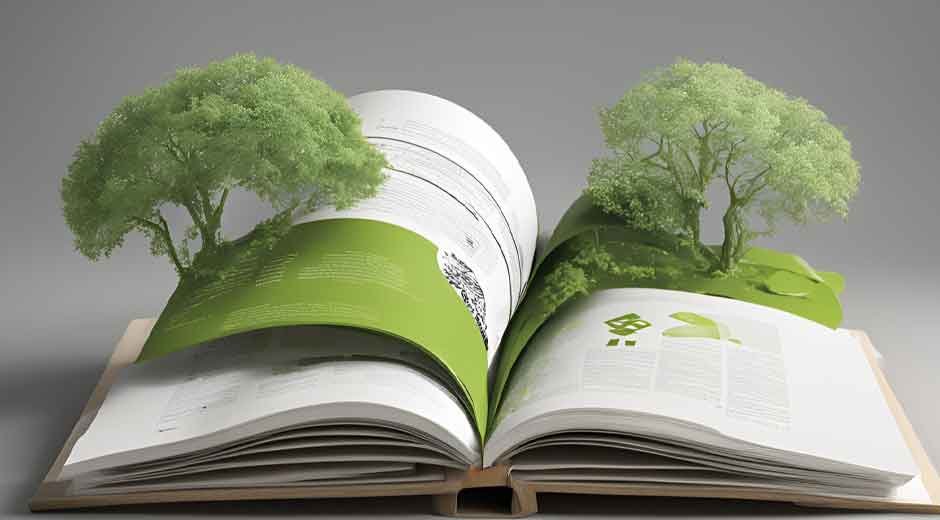Books Without Paper
Printed books carry a weight beyond their stories. Each volume begins with trees cut down to provide pulp for paper. The publishing industry still depends heavily on this cycle which puts pressure on forests already under threat from agriculture and construction. By contrast online libraries deliver words without felling a single tree. The shift may appear small at first glance but multiplied across millions of readers it saves countless acres of woodland.
For many readers it is simple to compare Z lib by how many books it offers against what traditional shelves can hold. Digital shelves stretch almost without end while a physical library must stop when the walls run out of space. This difference matters because every new print run means another demand on forests. Digital collections can grow without an axe touching bark.
Hidden Costs of Printing
The cost of a printed book is more than paper and ink. It involves trucks moving heavy loads airplanes rushing out urgent deliveries and warehouses storing pallets for months. Each step leaves behind a trail of fuel burned and carbon released. Deforestation is only part of the picture yet it remains the most direct damage. Removing trees at the current pace destabilizes soil and removes natural filters that keep water and air clean.
Digital collections trim down those hidden costs. A book can cross the globe in seconds with no ships or planes in between. Readers gain immediate access and forests gain a reprieve. It does not mean print should vanish but the balance shifts when digital options carry the bulk of demand. That balance is what keeps the roots firm in the ground.
Now comes a closer look at how online reading protects forests in practical ways:
- Lower demand for paper
Every printed page begins with a tree. Even recycled paper depends on pulp that must be processed again and again which still consumes energy and resources. By turning to online libraries demand for new pulp drops. Over time that drop can reduce the scale of industrial logging. The fewer trees cut the stronger the chance of forests regrowing naturally. A single person switching to digital may not seem important but multiplied by millions the impact grows large enough to count.
- Preservation of rare species
Forests are not just timber fields. They are home to birds insects and mammals that cannot survive without thick cover and food chains linked to old growth. When land is cleared for paper production habitats vanish. Online libraries cut this chain of destruction by removing one more reason to log. Every story downloaded rather than printed buys time for species already walking the line of extinction. A novel in digital form can mean the difference between survival and loss.
- Sustainable access to knowledge
Knowledge spreads more widely when not tied to cutting down trees. An online library can reach schools in remote villages or cities with crowded classrooms without any physical shipment. This model ensures education without drawing on forest resources. The outcome is sustainable because once the infrastructure is in place books flow endlessly at almost no cost to the environment. In this way access to learning grows without trimming away the planet’s green cover.
These three threads show how shifting to digital keeps forests alive. They also highlight how knowledge and nature can support one another rather than compete.
Cultural Shifts and Reading Habits
Beyond raw numbers there is a cultural turn at play. Readers raised on screens treat digital access as normal. They grow accustomed to having whole libraries in their pockets. That change reduces pressure on publishers to maintain endless print runs. Instead attention moves to quality editions for collectors while everyday reading shifts online. It is a quiet but powerful realignment.
Z library illustrates this change by offering a vast landscape of reading without requiring any paper at all. The presence of such a platform signals that culture no longer needs to lean so hard on presses and paper mills. It becomes clear that tradition and technology can work side by side without stripping forests bare.
A Greener Future in Every Story
The story of books is not just about authors and readers. It is also about the land that sustains the pages. When trees fall the echoes reach far beyond the forest. When they stand they guard soil water and air. Online libraries make it possible to read while keeping that balance intact.
The link between reading and forests may seem hidden but it runs deep. A single decision to read digitally carries the weight of preservation. Over time it becomes a pattern that changes markets and policies. The green future of forests may rest not only in the hands of conservationists but also in the choices of how stories are shared.


